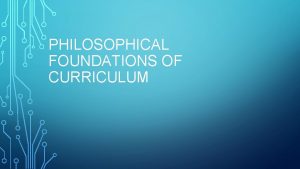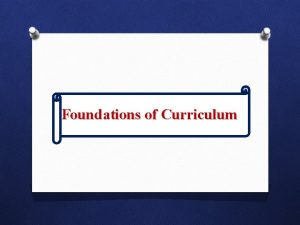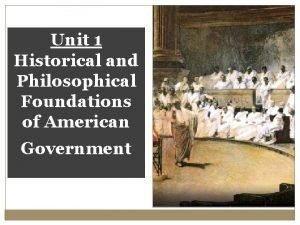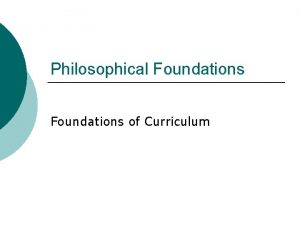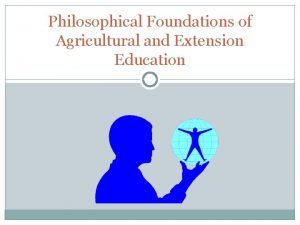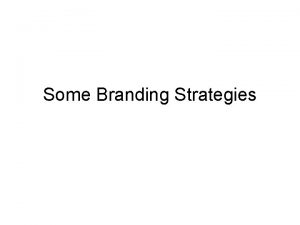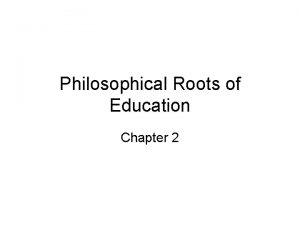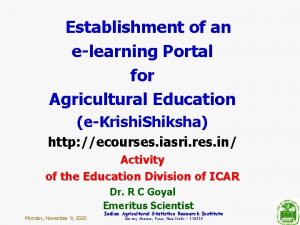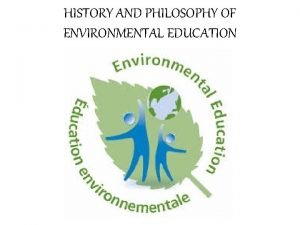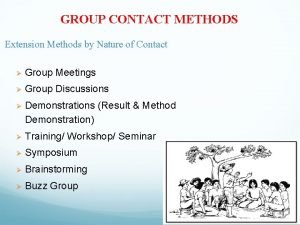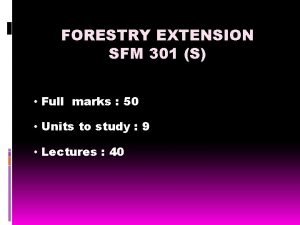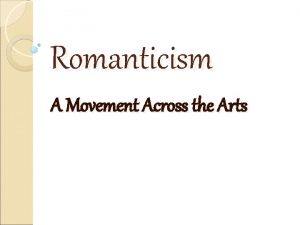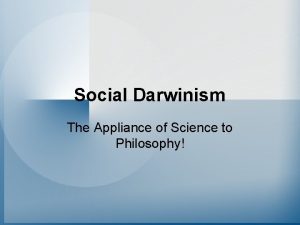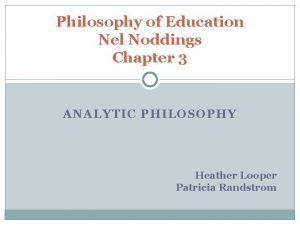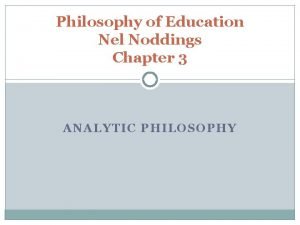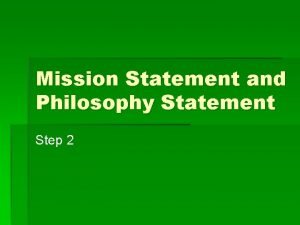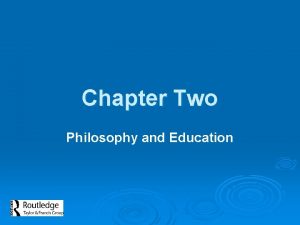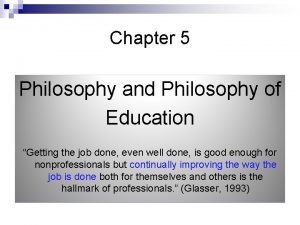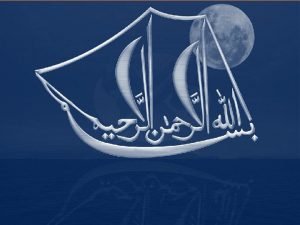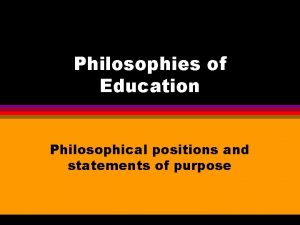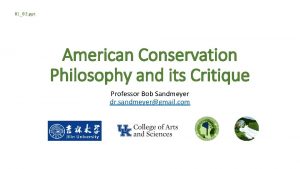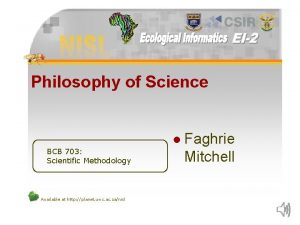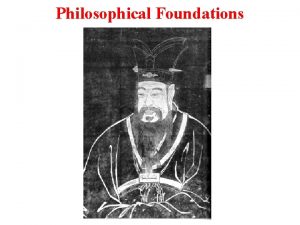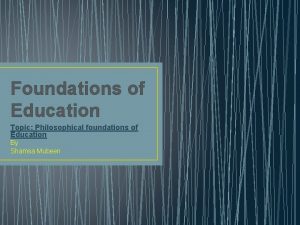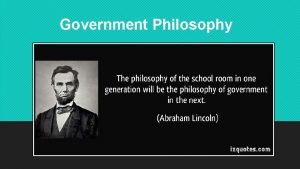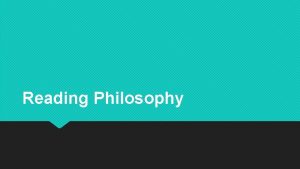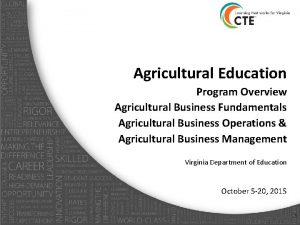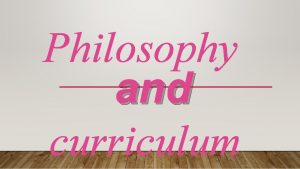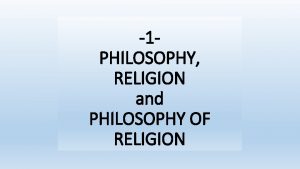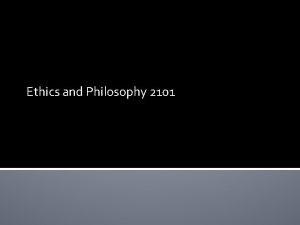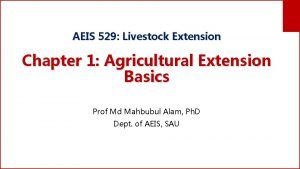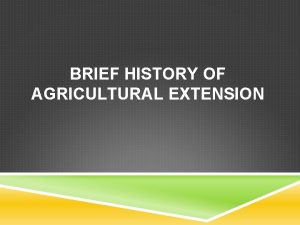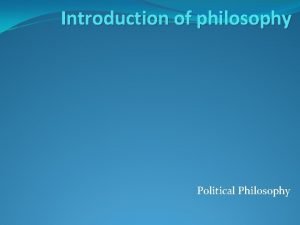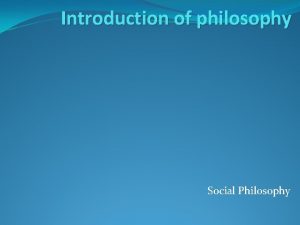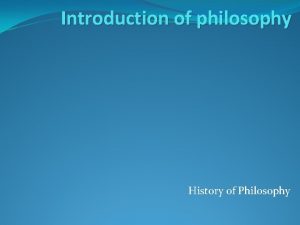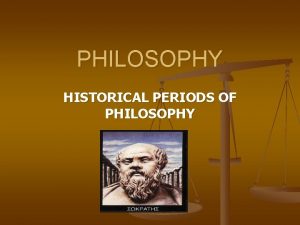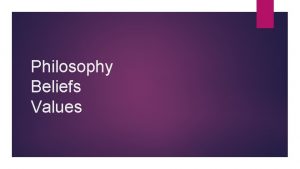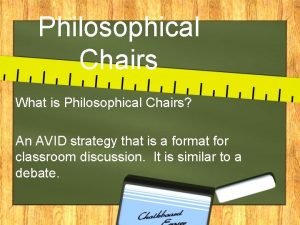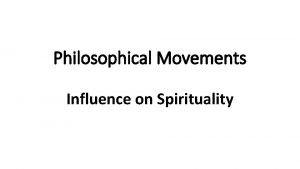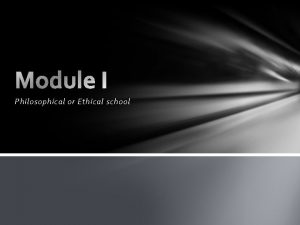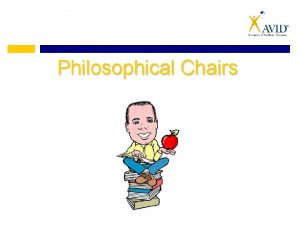Philosophical Foundations of Agricultural and Extension Education Philosophy

































- Slides: 33

Philosophical Foundations of Agricultural and Extension Education

Philosophy is: v A search for meaning and truth The general beliefs and attitudes of an individual or group The body of principles underlying a branch of learning or major discipline

Original Definition �“Love of Wisdom” �Definition was developed by Socrates

Of What Value is the Study of Philosophy �Provide clarification for what is or has been done by others �Provides a framework for life and our action �Can be useful in solving educational problems �A good mental activity

Three Major Areas of Philosophy �Metaphysics - the nature of reality �Axiology - the nature of values �Epistemology - the nature of knowledge

Metaphysics �Concerned with theories of the nature of reality. Why does the earth exist? How did it come into being? Is mankind free? Is there a God? What is real?

Metaphysics �Common terms used in metaphysics are: theology creationism evolution spirit free will atheism �Metaphysics is the area many people think of when they hear the term philosophy.

Axiology �concerned with theories of value �Two major divisions of axiology ethics � What is right and wrong? � What is evil and good? aesthetics � What is beautiful and ugly? � Some common terms used that relate to axiology are pessimism, optimism, hedonism, egoism, and altruism.

Epistemology �Concerned with theories of the nature of knowledge �Epistemological questions: How do people learn? What knowledge is of utmost value? What are the different types of knowledge? What are the educational goals of agricultural education and extension?

Philosophical Schools of Thought �Idealism �Realism �Pragmatism �Existentialism �Reconstructionism

IDEALISM

Idealism (Idea-ism) �Idealist believe that ideas are the only true reality. �The material world is characterized by change, instability, and uncertainty; some ideas are enduring

Idealism �We should be concerned primarily with the search for truth. Since truth is perfect and eternal, it cannot be found in the world of matter that is both imperfect and constantly changing.

Methods of Idealism �Study the classics for universal truths �Mathematics (2+2=4 is an absolute truth) �Dialectic (critical discussion) The dialectic looks at both sides of an issue �Lecture is used to transmit known truths and to stimulate thinking.

The Dialectic Antithesis “War is bad” Thesis “War is good” Synthesis

Leaders of Idealism �Socrates (469 -399 BC) �Plato (427 -347 BC) �St. Augustine (350 -4300 �Descartes (1596 -1650) �Berkeley (1685 -1753) �Kant (1724 -1804)

Socrates �Regarded as the father of philosophy �Believed we learned through questioning (the Socratic method) �Wrote nothing, what we know of his views were written by his followers, most notably Plato

Plato �A student of Socrates �Known as the father of idealism �Operated a school named the “Academy”

Plato’s views toward education �The state must take an active role in educational matters �The curriculum must lead bright students from a concern with concrete data toward abstract thinking �Students with little ability for abstraction should go into the military, business and industry.

Plato �Those who demonstrate proficiency in the dialectic would continue their education and become philosophers in positions of power to lead the state toward the highest good (the Philosopher-King) �Believed both boys and girls should be educated and girls should be equals.

Augustine (354 -430) �Born in North Africa (Roman citizen) Mother - Christian, Father - Pagan �Attended Roman Primary School grammar and literature emphasized �At 16 went to Carthage and studied: rhetoric, music, geometry, grammar, mathematics �During his younger days “He lied, he stole, he wenched. ”

Augustine. . . �Became a grammaticus in his native town �Taught rhetoric in Carthage, Rome, Milan �While in his 30’s was converted to Christianity, took his holy orders and became a great evangelist and priest. �Found great favor in the church and became a great religious leader.

Augustine �People do not create knowledge; God has already created it, but people can discover it through trying to find God.

Augustine’s Beliefs �Women were held in low regard (this view was incorporated into the church and held for a thousand years) �Only a few people possessed the mental ability to quest for the truth. Therefore most people should rely on the church for knowledge.

Augustine’s Beliefs �Augustine used Greek writings but began to have doubts how people who did not know God could write anything which could be of value to Christians. �In 401 the Church outlawed pagan writings such as Plato and Aristotle (even the church leaders were not allowed to read the ancient literature). This continued for 1000 years.

Augustine’s Beliefs about Teaching �Encouraged the use of summaries �Believed teachers should teach through persuasion and by leading impeccable lives. �Teachers should not expect to increase their worldly stores through teaching. �The “stick and fist” were needed to keep students in line since people were wicked (because of Adam).

The Church and Idealism �Idealism has exerted a great amount of influence on Christianity. �For centuries the Christian church was the creator and protector of schooling. �Generations educated in these schools were indoctrinated with the idealist point of view (including early American education).

Descartes (1596 -1650) �A renown mathematician �Wrestled with the question of what was real and did he really exist (perhaps he was a dream). He finally concluded: “I think, therefore I am” �Thinking and ideas are the ultimate truth.

George Berkeley (1685 -1753) �Existence is dependent upon some mind to know it, and if there are no minds, nothing would exist unless it is perceived in the mind of God.

Immanuel Kant (1724 -1804) �“…the greatest and most difficult problem to which a man can devote himself is the problem of education…” �Education should teach students how to think according to principles moral laws, moral ideals and moral imperatives �Enlightenment is the goal of education

Educational Aims of Idealism �Develop the mind �Search for true ideas �Character development �Self-realization

Educational Aims of Idealism �True education is concerned with ideas rather than matter. �The idealists wants to give students a broad understanding of the world in which they live.

The Idealist and the Chair �To an idealist, the concept of “chair” is important. You could destroy all the chairs in the world but they would still exist in the mind. The idea of a chair is the ultimate truth.
 Philosophical foundation of curriculum
Philosophical foundation of curriculum Sociological bases of curriculum
Sociological bases of curriculum Philosophical foundations of the american revolution
Philosophical foundations of the american revolution Curriculum trends in idealism
Curriculum trends in idealism State 4 philosophies of extension education
State 4 philosophies of extension education Backbone of extension education
Backbone of extension education Flanker brand strategy
Flanker brand strategy Branches of philosophy
Branches of philosophy E learning agriculture portal
E learning agriculture portal Ffa three ring model
Ffa three ring model Cross section of corn represents
Cross section of corn represents History and philosophy of environmental education
History and philosophy of environmental education Method demonstration in extension
Method demonstration in extension Extension education is an art
Extension education is an art Principle of extension education is
Principle of extension education is Philosophical and artistic movement
Philosophical and artistic movement Philosophy of herbert spencer in education
Philosophy of herbert spencer in education Analytic philosophy in education
Analytic philosophy in education Analytic philosophy in education
Analytic philosophy in education Physical education philosophy statement examples
Physical education philosophy statement examples Philosophy three branches
Philosophy three branches Progressivism in education
Progressivism in education Physical education
Physical education Schools of educational philosophy chapter 9
Schools of educational philosophy chapter 9 Hindu philosophy of education
Hindu philosophy of education Philosophy of education
Philosophy of education Allama iqbal poetry in english
Allama iqbal poetry in english Physical education philosophy statements
Physical education philosophy statements Reconstructionism philosophy of education
Reconstructionism philosophy of education Realism philosophy of education
Realism philosophy of education Experimentalism philosophy of education
Experimentalism philosophy of education John locke philosophy of education ppt
John locke philosophy of education ppt Conclusion on rabindranath tagore
Conclusion on rabindranath tagore What is philosophy
What is philosophy
